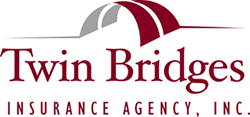It is another bustling day in Albany, NY. Maybe you are throwing a party to celebrate opening day of the upcoming Albany Devils hockey season, or having some girlfriends over before hitting Crossgates Mall for a day of fun. No matter your plans, you know that time with friends, family or acquaintances always equals a good time. The fun could quickly be brought to a halt if a guest is injured in your home or on your property.
As your independent agent in Albany, NY Twin Bridges Insurance Agency wants to make certain that the enjoyable times stay that way. Here are ten things you can do to ensure your visits from guests stay delightful and accident-free:
-
Pick up toys and miscellaneous items on the floor
-
Use rugs and mats that grip the surface below
-
Make sure your stairs and handrails are up to code
-
Keep decorative items off of steps
-
Clean up spills immediately
-
Replace any flooring that has holes or tears
-
Keep rooms well-lit
-
Throw away mats that are curling on the edges
-
Keep walkways clear of leaves and snow, as well as free from ice
-
Secure any cords that may become entangled with feet
As your independent agent, we want you to feel confident in your homeowners insurance coverage in case an accident ever does occur on your property. We will be happy to look at your current policy to ensure you have an adequate level of insurance to suit your needs. We can also run a comparative quote to make certain you are paying the lowest price for homeowners insurance.
To get a live comparative quote, or if you have concerns about how a personal injury claim may affect your homeowners policy in the 12203 area, contact NY Twin Bridges Insurance Agency today.








 Click to Call
Click to Call Get Directions
Get Directions